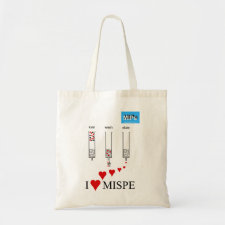
Authors: Majdi M, Mizani F, Mohammad-Khah A
Article Title: Determination of Dexamethasone disodium phosphate using potentiometric sensors based on molecularly imprinted polymer in flow injection and batch systems.
Publication date: 2021
Journal: Analytical and Bioanalytical Electrochemistry
Volume: 13
Issue: (1)
Page numbers: 139-159.
Alternative URL: http://www.abechem.com/article_245924.html
Abstract: Dexamethasone disodium phosphate (DSP) is one of the medications used for treatment of inflammatory diseases. In this work, a potentiometric sensor, based on a non-covalent imprinted polymer, was fabricated for the determination of DSP in pharmaceutical formulations. The molecularly imprinted polymer (MIP) was synthesized by precipitation polymerization using DSP as a template molecule, methacrylic acid as a functional monomer and ethylene glycol dimethacrylate as a cross-linking agent. The sensor was developed by dispersing the DSP imprinted polymer particles in o-nitrophenyl octyl ether plasticizer and embedding in poly(vinyl chloride) matrix. MIP was used as a suitable ionophore for the preparation of novel polymeric membrane (PME) and coated graphite (CGE) DSP-selective electrodes. The electrodes exhibit a Nernstian behavior for DSP ions over wide concentration ranges (1.0 × 10-7 - 1.0 × 10-1 M for PME and 1.0 × 10-8 - 1.0 × 10-1 M for CGE, Nernstian response (27.25 mV/decade for PME and 28.11 mV/decade for CGE), very low limits of detection (6.8 × 10-8 M for PME and 6.3 × 10-9 M for CGE), fast response time (~15 s for PME and ~10 s for CGE) and a satisfactory long-term stability (3 months) are characterizations of the proposed sensor. The sensor showed a high selectivity and a sensitive response to the template in aqueous system. The CGE was used in flow injection potentiometry and resulted in well-defined peaks for DSP ions with stable baseline, excellent reproducibility and very high sampling rate of 180 injections per hour. The proposed FIP system was used for the determination of trace DSP in pharmaceutical formulations
Template and target information: dexamethasone disodium phosphate, DSP
Author keywords: molecularly imprinted polymer, Flow injection poetntiometry, Coated graphite electrode, Dexamethasone disodium phosphate, biosensor



Join the Society for Molecular Imprinting

New items RSS feed
Sign-up for e-mail updates:
Choose between receiving an occasional newsletter or more frequent e-mail alerts.
Click here to go to the sign-up page.
Is your name elemental or peptidic? Enter your name and find out by clicking either of the buttons below!
Other products you may like:
 MIPdatabase
MIPdatabase









